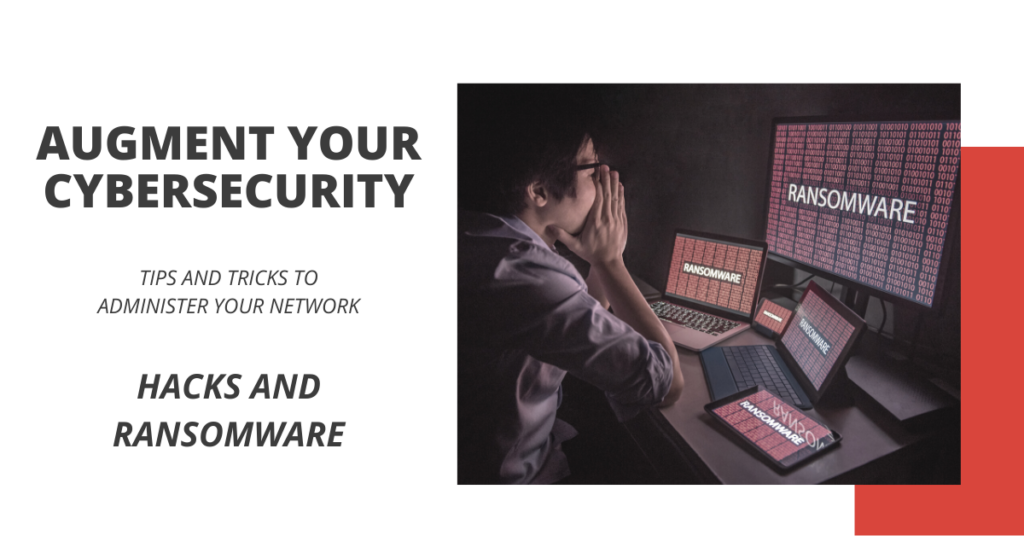In today’s cyber environment every individual and company is susceptible to malicious attacks. This week’s Tips and Tricks explains what hackers do, how ransomware works and how to avoid disaster.
WHO IS VULNERABLE TO AN ATTACK?
The greatest security vulnerability in any organization is its own employees. They may click on the wrong link in an email, download the wrong file or give the wrong person their user account credentials. On a larger scale, there are key industries that are most susceptible to cyber attacks: small businesses, healthcare institutions, government agencies, energy companies and higher education facilities. Attacks can happen to large corporations, as has happened to Adobe, Yahoo, eBay and Verizon, however in 2021, attackers are specifically focused on local SMBs. Companies with no layers of cybersecurity solutions, such as email protection and antivirus software are even more exposed.
In 2020, there were a total of 1001 data breaches, with over 155.8 million individuals affected by data exposures. In 2019, 88% of organizations worldwide experienced spear phishing attempts.
The bottom line: each individual needs to be protected.
WHAT IS A CYBER ATTACK?
A cyber attack is an assault launched by a cybercriminal through computer networks. Cyber attacks maliciously disable computers, steal data or use one breached computer as a launch point for other attacks. The most common cyber attacks include malware, ransomware, phishing, distributed denial-of-service (DDos) and business email compromise.
HOW DO HACKERS HACK?
People create computer threats. Any time a computer predator has access to the internet and to your PC, the threat they pose to your security increases exponentially. They are unauthorized users who break into your system so that they can steal, change or destroy information. They are clever manipulators who have detailed technical knowledge, which makes their hunt for your information very clear. Hackers use phishing scams, spam email, instant messages and bogus websites which deliver dangerous malware to your computer.
WHAT CAN A HACKER DO TO ME?
Once a hacker has gained access to your system without your consent, they are able to pounce on your private information and wreak havoc. Some things they can do include:
- Hijack your usernames and passwords
- Steal your money and open financial accounts in your name
- Ruin your credit
- Make purchases
- Abuse your Social Security number
- Sell your information to other parties who will use it for illicit or illegal purposes
WHAT IS RANSOMWARE?
Ransomware is an evolving form of malware designed to encrypt files on a device, thus rendering them unusable. In exchange for decryption, cyber attackers demand ransom. They will often threaten to sell or leak the data if the ransom is not paid. Ransomware can be devastating to an organization. Even if you pay the ransom, there is no guarantee that your files will be recovered. Some demands exceed $1 million, so it is important to take as many precautions as possible to prevent yourself from such a debilitating attack.
HOW CAN I MITIGATE AGAINST RANSOMWARE?
- Update software and operating systems with the latest patches.
- Never click on links or open attachments in unsolicited emails.
- Back up data on a regular basis. Keep it on a separate device and store it offline.
- Restrict users’ permissions to install and run software applications.
- Enable strong spam filters to prevent phishing emails from reaching end users.
- Deploy email protection software.
- Configure firewalls to block access to known malicious IP addresses.
Like what you see? CLICK HERE to join our Tips and Tricks of the Week email list!

